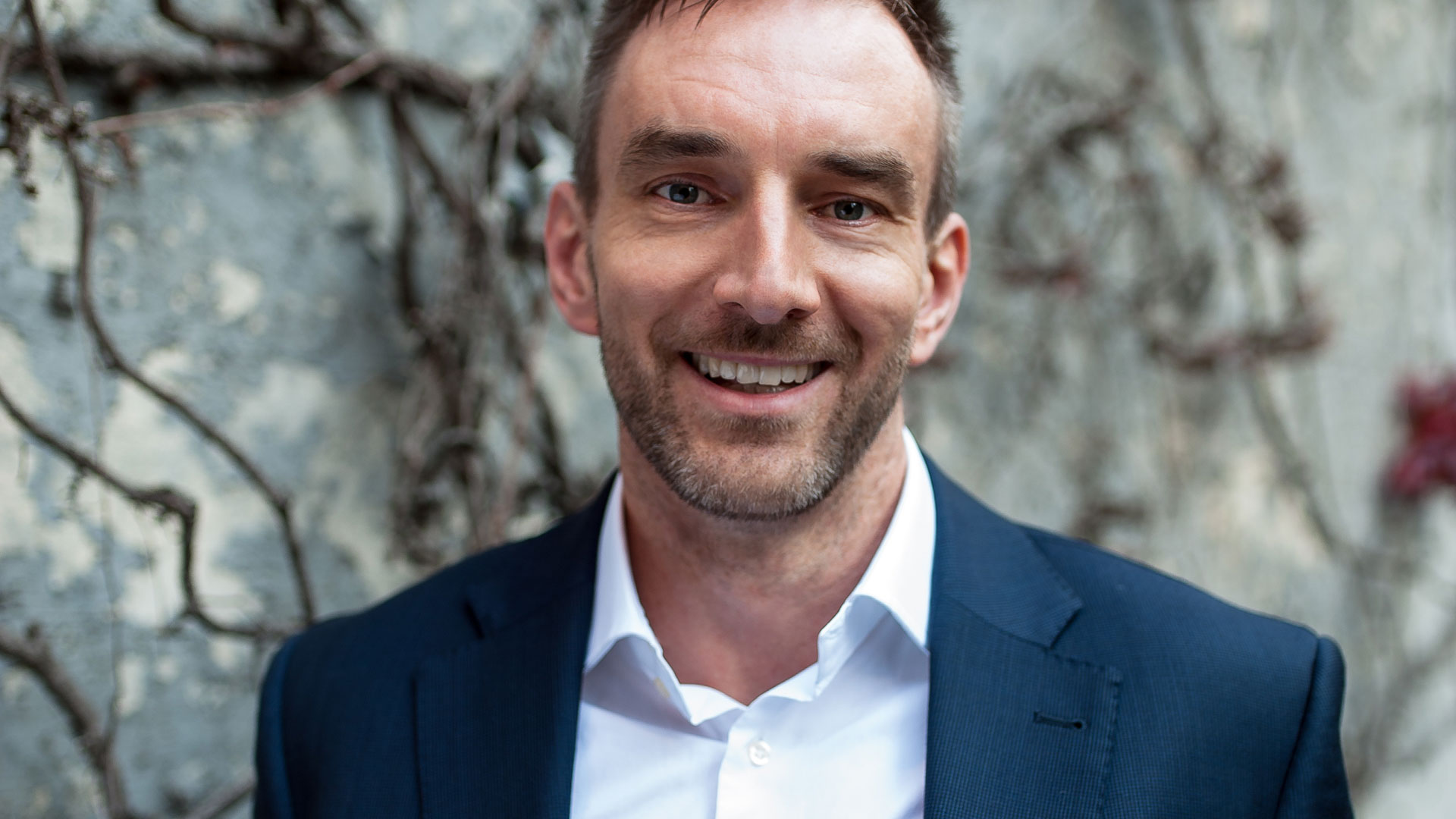Snowball Momentum: Building Business Startups
New Zealand Business has been great at creating the Bach, the Boat, the Beemer lifestyles so far in general. But as the likes of Xero and Rocket Lab have shown us, there is the potential for a whole lot more. Simeon Burnett, the co-founder of Snowball Effect, talks to us about raising capital for business startups and growth in the new age beyond the 3 Bs.
What was the genesis of Snowball Effect?
It came from a vision of looking at current capital markets. If you look at those capital markets by comparison to virtually any other country, we have a tiny proportion of companies in New Zealand that are available for people to invest directly in, and they’re obviously the companies on the NZX.
You’ve got the top 50 and, probably in practice, there’s about 70 companies in New Zealand that you can ring up your broker or go to ASB Securities and actually invest in. The rest of them, while they’ll be there and while they’re listed and there’s probably a price floating around somewhere, it’s difficult to transact. There’s just not the liquidity there, there’s not the coverage by the analyst to provide the brokers with competence to make recommendations to the client or funds.
So as a result you’ve got all these companies in New Zealand that, if you want to have a bet on or you want to secure and you want to get access to somehow to make up part of your financial exposure, it is hard to do so. We’ve got a reasonably healthy private equity sector. In fact, there’s a lot of cash that comes in from offshore, in particular Australia into the New Zealand private equities and they’re companies that are a bit more mature. They’ve probably been able to demonstrate attractive growth over a reasonably long period of time. They’re profitable.
Take My Food Bag as an example, there’s a point where those founders have been happy for a private equity company to buy up a larger portion of the business. So they’ve got a partial exit, they’re still involved but that private equity firm comes in and puts people in the business at Board level, operational level, where they’re actually running it.
So there’s a lot of that in New Zealand right now. But the reality is, depending on how wealthy you are, it’s difficult to get access to that.
If you go back down the chain a little bit more, you’ve got what’s traditionally been known as venture capital, which are companies that take, for example ArchiPro, they’ve shown some green shoots, they’ve got revenues, they’ve got staff. It’s not just an idea, it’s actually demonstrating something and they’re growing well. So you’ve got that kind of category of investment.
There are a few funds around, not much by comparison to other countries of a similar size, but there are some of those around. Again, they’re funds, so to get access to that stage of company, you’re going to invest in a fund and invest across a range of companies, which is perfectly fine.
And then you’ve got angel stage, so guys like the Ice House and the Ice Angels. You can go along and be an Ice Angels’ member. Again, quite fun focused.
So the point is there are different touch points along the way that you can invest in companies. But you tend to be doing it by funds that are potentially quite restricted to who can actually invest.
So the opportunity that we sought was to actually do a lot of that stuff online to make it easy and simple for people to come in and make an investment in a company that they like the look of. That was supported by regulatory change. So we are licensed by the FMA, that allows us to do what we do in terms of the offers that are available to the public.
Over time, we’ve developed and evolved what we do to be able to provide companies with the optionality around how they raise capital. Are you wanting to raise funds from one or two strategic investors? Are you wanting to raise from a wider group, possibly your customers, your consumers? This is particularly attractive if you have a strong brand or if you have something that you’re wanting to develop a brand around and you want that ambassador thing as well as having those people as shareholders.
In practice, it tends to be a combination of both. It’s not pick one or the other. We’ll work with companies to take them through a process to get some good core zone investors in and then, if they want to and we think it’s something that could be successful, open it up to a wider group of people.
And as you say there’s a great range of awareness from a growing customer base.
That’s right. We’ve been able over time to build up around about 18,000 investors. We’ve got about 1,200 that would meet criteria to be those high networth investors. There’s 400 that are looking for directorship roles, that sort of thing.
So it’s about the processes. It’s about getting capital and in an efficient way, and giving the companies a leg up and giving investors the opportunity to invest directly in those companies. The opportunity to have that relationship with those companies, whether they’re putting in $1,000 and they’re getting access to the company updates, getting an understanding of what the journey is that their company’s on that they’ve invested in, or whether they’re actually doing a whole lot more than that and putting in $1m and being involved at core level. So it’s about working on a strategy of what’s going to work for that company.
Were you part of driving the change for the FMA regulation, or did you see the opportunity with the change that they had made? Was that driven
from overseas?
It was a little bit of both, I guess. We were made aware of the impending change in regulation, and I think one of the cool things about New Zealand is you can generally get connected to people who will ultimately put you in touch with the right people or something like the FMA, or RB (Reserve Bank) as it was. So the RB draft the regulations and the FMA see themselves as the regulator.
So we went and met with RB, talked to them about what we were doing, started to get out there in the market and talk to people and provide that market feedback through to them. So, that helped shape things to some degree. Obviously, they were taking on feedback from a whole bunch of different people and people could submit their thoughts and observations based on their experiences and out the back of all that some regulations get spat out.
That was an interesting aspect of being involved in what we’re doing. I think by and large it’s shaken out pretty well. One of the key things needed to be, and has been, the regulations were like touch in terms of being able to implement them. If you’re in a heavily regulated industry, the first thing that’s going to happen is there’s going to be cost and when you’re working with young companies, at some point someone needs to absorb that cost, someone has to wear that. Passing on that cost to young companies just doesn’t really make sense, and whilst this is a relatively risky asset class, as long as you’re crystal clear with people at different levels of education around and what the risks are and you do as much as you possibly can to warn them, then you’re giving people the opportunity to invest in something that they possibly wouldn’t have otherwise had.
But you’re also getting Kiwis into backing other Kiwis and it’s something that, as a country, we don’t have a tradition of. New Zealand Herald talk about it every second day, the property market and our obsession with plugging money into that, so trading property with each other. But the reality is over the last 100 years, New Zealand has slowly worked its way down the OECD ladder in terms of productivity and we’ve just under-invested in stuff that actually employs people and creates new things, and builds the future. I think New Zealanders are cautiously interested in this kind of thing. It doesn’t take much to find people that reference the 1987 share market crash.
It’s funny how that still looms.
It is. But you also have a generation now that weren’t around in 1987, and also a group of people, which is quite broad in terms of wanting to get exposure to that asset class, wanting to be involved with companies whatever their limit is; if it’s a $1,000 investment or the $1m investment.
So, it’s really for us about being able to freshen up what is a relatively stagnant industry. What we’ve done with the first four years is focus very clearly on high risk equity. It’s something that should only ever be a very small proportion of someone’s portfolio, but we have an awareness now, so that allows us to look at other things that audience might be interested in, in terms of investment opportunities.
You have still a wave of companies out there that can and should have access to different funding mechanisms and alternatives. It’s probably something that bankers don’t service particularly well, because if you look across banking globally, the reality is that most of them haven’t really changed in about 200 years, talking commercial banks or investment banking.
So there’s plenty of opportunities in that industry, or in the industry that we’re in. And for us it’s about picking off the ones that we think have got some real potential, but it just takes time to build. Reputation is a massive thing in any industry, but particularly financial services, so you’ve just got to build away at that and pick your opportunities and execute them well.
Have you noticed that there is a growing appetite within the younger generation to diversify their investments beyond property?
There is an appetite generally amongst New Zealanders. Because we clipped all the necessary information so we can be very specific about the type of person, or at least the age demographic of people that invest. It does tend to be people that are probably 45+, so you’re not talking about 20 year olds chucking in $1,000, which there’s certainly plenty of them.
But the demographic is actually older and it’s people that probably have more disposable income, have more business experience, all this commercial experience and are interested in dabbling in these sorts of opportunities, some obviously more than others. The whole purpose of what we did was to really put a lot of the stuff that would normally be done by PDFs and signatures and witnessing, all online and make it nice and simple for people to invest.
But also ensuring that there are necessary checkpoints along the way to make sure that they understand the risks around what it is they’re doing, the fact that they can’t just go out there and sell these things, that it’s made that they should be prepared to lose or at least have locked up for a reasonable period of time.
When you are building a new infrastructure like that, what sort of process did you have to got through and how far down the track was it before you knew that it was all going to work?
One of the main things we had to work with was regulation. What were the regulators going to allow or what they require versus actually building it. So I remember because there was a date that we got issued a licence, and then we set a date in terms of when we actually wanted to launch. And from being issued a licence, it was sort of around that point we actually were told these are the things that you need to have in place and this is how it needs to work.
So it was just a mad scramble really to haul that process together so that you’re providing something that met the various regulatory requirements, but also hopefully it’s nice and smooth and gives a great user experience. That’s challenging when you’re working in a world of anti-money laundering, that you want to get people through quickly, remind them of the risks and check all those boxes around the regulatory requirements.
I think we’ve done a pretty good job. I guess we’ll find over time like anything, where you are constantly evolving it and learning along the way. But I think we’ve got a process now that’s pretty good. I think it’s the best in the market.
Do you get the sense that we can be a lot more self-contained here, rather than having to rely on overseas markets for growth?
It’s possibly getting better. I would say though that, and it’s not necessarily a bad thing, looking at something like Xero, who have chosen to go offshore for a whole bunch of different reasons, their argument has been around coverage, being able to get in to different funds by being listed on the ASX and all that sort of thing. I don’t actually have a problem with that. There was quite a bit of negativity around their decision to do that, but the reality is that they needed to do what’s best for their business.
I don’t think there needs to be any kind of obligation for a New Zealand business to stay somewhere where they probably think it’s sub-optimal for the company, but they’re doing it out of loyalty to New Zealand.
Xero came out of a listing in 2007 raising 15 odd million dollars and they’ve pushed their way through that now and come out the other side with $4.5 billion.
That’s remarkably successful. Look at what it is that they’ve done and how they’ve done it, rather than being caught up on the fact that they’ve chosen to list on the ASX or whatever it might be. I think that’s just a function of the fact that we’re in a global market now and that’s the decision they’ve made in terms of the best interest of the company.
Do you think the Tall Poppy thing is still an issue?
I think it’s alive and well. I remember hearing not that long ago Peter Beck talk about New Zealand attitudes versus American attitudes. He probably overplayed it just for effect, but he said, ‘Look, if I was in New Zealand and I failed as an entrepreneur, the investors would be like, “don’t talk to me again”. If I was in the US and I failed as an entrepreneur, they’d say, “Okay what’s the next thing?”‘ So they’d come at it again and back you hard.
So as I say, he was over-emphasising it to a degree I’m sure, but I think that the point was that New Zealand’s attitude towards its failure can be improved a bit. I think the fact that we are a country that’s reasonably isolated has got some benefits but there’s probably some things that restrict us a little bit as well. If you’re in a large country, you see a lot of large businesses around you, you’re sitting in that environment. In New Zealand, you see a lot of small businesses around you.
So sometimes it can be a little bit of a case of being in an environment that creates small businesses versus being in an environment that creates big businesses. You’re comfortable being a small business because everyone else is a small business to a degree. The Beemer, the bach and the boat, is kind of the New Zealand way, and if you’re a domestically-focused business, that’s probably where you’ll get to in a lot of cases.
But I really hope that over the next however many years that we start to develop more entrepreneurs that are more ambitious and want to build billion dollar businesses, rather than build a company that will fund them a boat and a bach and a BMW.
Do you feel like you’re a part of that education between investors and entrepreneurs where you are walking investors through the expectation around liquidity of their investment and exits etc, while also talking to the entrepreneurs about actually starting to take it beyond the beemer, the bach and the boat?
Yeah, I think the educational bit, particularly for investors, is super important in New Zealand. It’s why we do have relatively low rate of financial literacy in the country. We try and support that by putting on investor master classes. We will get people to come along and it doesn’t have to be anything to do with us, in fact we kind of make an effort to make sure it’s not to do with Snowball Effect, it’s just around the markets or how you think about building a portfolio, or whatever it might be. It’s just a way for people to come along and upskill themselves and educate themselves on whatever it is across a general category.
We had Rob Campbell a little while ago talking about being an effective director and what that means. So, there’s all those little touch points along the way where as an investor you can walk away from and just know a little bit more than what you did when you came in. So, that’s really critical.
On the company side, I think there’s a lot of people out there that want to help companies and have been successful in some way with business and we still aspire to create a really efficient way for those people to be able to connect up with entrepreneurs and people that are building businesses. Whether it’s someone who’s putting in their first thousand dollars in the first shares that they’ve ever bought, through to someone who’s really experienced and actually has a sector or an interest that they want to be involved with and being able to provide both those spectrums with stuff that really is attractive to them.
Is there an average day for you?
No, not really. Busy, I guess on average. But I really enjoy it. I said to someone the other day, I don’t think I’ve worked a day since I started Snowball Effect or since we got going and my time in the team, I’ve enjoyed every second of it. Of course it has its challenges, but I’ve been able to step away and realise that if you think back to one year prior or six months prior, you’ve actually come a long way in that time.
I think it’s very easy to be very short-term focused on things and you want immediate results, whether that’s just in terms of what you’re developing as a product or financial results. But the reality of it, probably for the first five years of the business, and probably even beyond that, you’re sowing the seeds for the future in a lot of ways and it’s around building a foundation that you can really build off, rather than just coming and doing a few things hoping it’s going to work.
If things start to go South a bit then you pull yourself down, which is incredibly easy to do, because you’re living and breathing it. But sometimes you just have to have that perspective and just reflect on what’s actually happened over a period like six or 12 months, which can be quite a lot.
What sort of vision do you have for the future?
Our vision’s pretty simple and it’s not a metrics thing. It’s quite qualitative and it’s really been the most significant player in the New Zealand capital markets. I think there will be a point when we can sit back a bit. Sort of like a hard day’s work building something or mowing the lawns or doing the garden, you sit back in it and you look with some satisfaction on what it is you’ve done. It’s the same thing here, except it’s not an afternoon or a day’s work.
As I said before, we see lots of opportunities across the capital markets and I don’t think that sort of measure of success, in terms of being that significant player, should be defined by one or two things. We certainly hope for great returns for investors. There will certainly be losses for investors, it’s a high risk asset class and there’s no getting away from that. But you need some of these things to push through and really blossom. And I’m sure in time there will be those.
So you need that and we want to see that thriving relationship between investors and companies. The markets will continue to change and they’ve changed a lot in the four years we’ve been in the market and you continue to see opportunities.
So, we’ll continue to pick them off as they come along and as we think that we can really deliver and execute on those.





